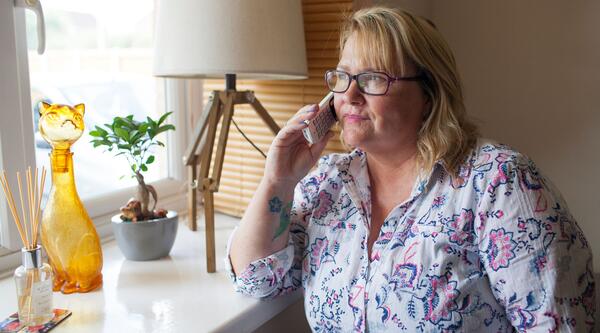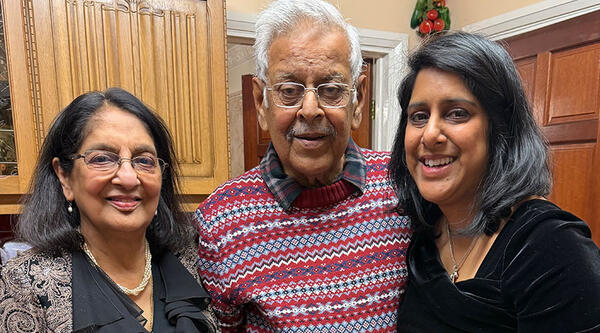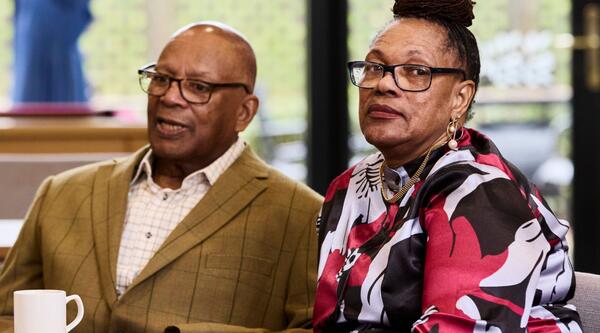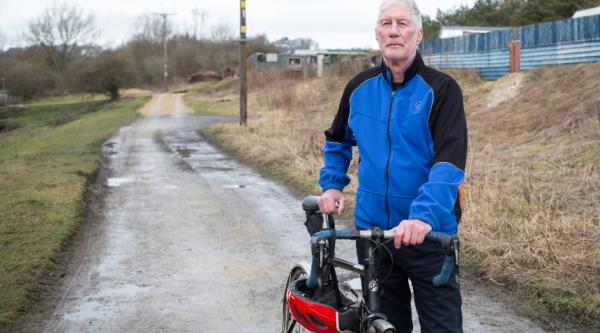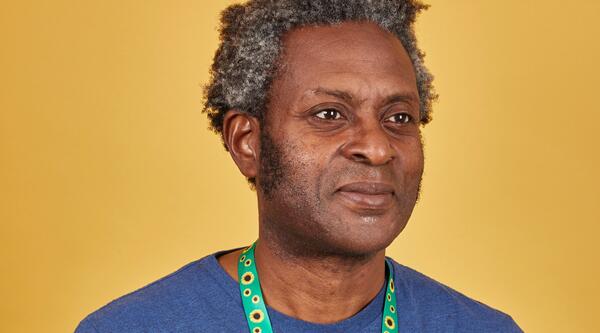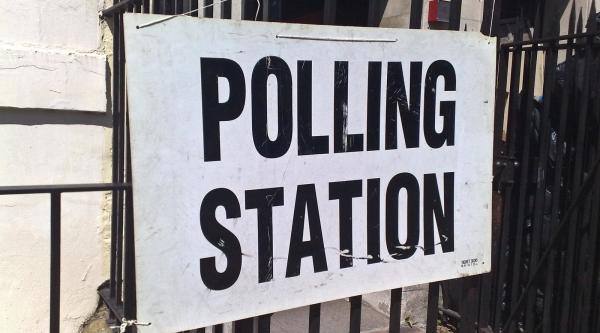Safeguarding and dementia
Learn about Safeguarding, how to keep yourself and others safe, and who to contact if you are concerned about someone who may be at risk.
What is Safeguarding?
Safeguarding is a term used in the United Kingdom and Ireland to denote measures to protect the health, well-being and human rights of individuals, which allow people — especially children, young people and vulnerable adults — to live free from abuse, harm and neglect.
The Care Act 2014 states Safeguarding is 'Protecting an adult’s right to live in safety, free from abuse and neglect. It is about people and Organisations working together to prevent and stop both the risks and experience of abuse or neglect, while at the same time making sure that the adult’s wellbeing is promoted including, where appropriate, having regard to their views, wishes, feelings and beliefs in deciding on any action.’
In summary; Safeguarding works with the person and those supporting them to protect them and keep individuals safe.
When we consider a Safeguarding the following six principles are considered (as part of the Care Act):
- Empowerment - People being supported and encouraged to make their own decisions and informed consent
- Prevention - It is better to act before harm occurs.
- Proportionality - The least intrusive response appropriate to the risk presented.
- Protection - Support and representation for those in greatest need.
- Partnership - Local solutions through services working with their communities. Communities have a part to play in preventing, detecting and reporting neglect and abuse.
- Accountability - Accountability and transparency in safeguarding practice.
Please note the Wales and Northern Ireland have their own legislation and good practice relating to safeguarding:
- Social Services and Well-Being (Wales) Act 2014
- Safeguarding Vulnerable Groups (Northern Ireland) Order 2007
Safeguarding and people with dementia
Safeguarding can be applicable to a wide range of adults, often these adults are identified as ‘vulnerable’ or ‘at risk’. This can include people with dementia, people with learning disabilities, people with sensory or physical disabilities and includes carers.
People with dementia will have cognitive symptoms that may make them more at risk of abuse or neglect. They may experience:
- Memory loss
- Problems with concentrating, planning and organising – including making decisions and problem solving
- Communication difficulties
- Difficulties with orientation
All of these can make it harder for the person to protect themselves.
Carers may also be at risk of neglect and abuse especially if they are overburdened, isolated, lonely or experiencing severe stress. For example, a carer finding a situation difficult which may result in them not looking after themselves or impact on the care they are providing to the person they care for.
By raising a Safeguarding this would have a positive impact for their well-being as it could result in a carers assessment being completed. The review with the individual carer would enable suitable support to be put in place to support them with their caring role.
What is abuse?
Abuse is when someone causes another person harm or distress, this can be an Adult or a Child. It can take many forms, ranging from disrespect to causing someone physical or mental pain. It can occur in someone’s home, a care home, hospital or a public place.
Often the people who commit abuse are taking advantage of a special relationship. They may be a family member, friend or paid carer who the person trusts. Sometimes abuse isn’t intentional but happens because someone doesn’t have the skills or support needed to care for someone.
What are the indicators of abuse?
Signs of abuse can often be difficult to detect, but these could include:
- a sudden change in behaviour
- unexplained bruising or injuries
- not eating enough
- low self-esteem
- changes in how the person looks,
- missing personal items, etc.
The list of possible signs are not exhaustive and people may experience different types of abuse.
If you have any concerns about how you or someone you know is being treated, it is important to tell someone. Safeguarding can help put support that you or someone else may need in place.
Keeping yourself and others safe
- Talk to family and friends if you feel unsafe in any way or are concerned about somebody else's safety, just tell someone.
- Call the police if you or someone is in immediate danger.
- Discuss your issues with your local authority Safeguarding team. If you think you, or someone you know is being abused, contact your local authority safeguarding team (Here's a list of all councils on the Government's website).
- To discuss safeguarding concerns in Northern Ireland here is a list of your local gateways.
- Get involved in the local community and link with neighbours and local networks. These can be accessed via your local authority website or gov.uk.
Who should I contact about Safeguarding concerns?
If you are concerned about a person at risk, your first contact should be the Local Authority Safeguarding team to discuss your concerns.
A local authority safeguarding response is not the only, or always the most appropriate, response to keeping people safe. Wherever someone is being harmed, or at risk if harm, there are agencies that can help, even if a formal safeguarding response is not triggered.
These include: the police, domestic abuse services, the National Referral Mechanism for victims of modern slavery, community and support groups, other social services teams.
A local authority has duties to promote an individual’s wellbeing, to prevent or delay care needs from developing, and to assess someone if there are safeguarding concerns and it appears that the person may have care and support needs, even if the person does not want an assessment. All of these may be helpful in a complex situation.
Further reading about Safeguarding
- SCIE (Social Care Institute for Excellence)
- The Care Act on Legislation.gov.uk
- Adult pocket guide by NHS England
- CQC (Care Quality Commission)
- NHS England


